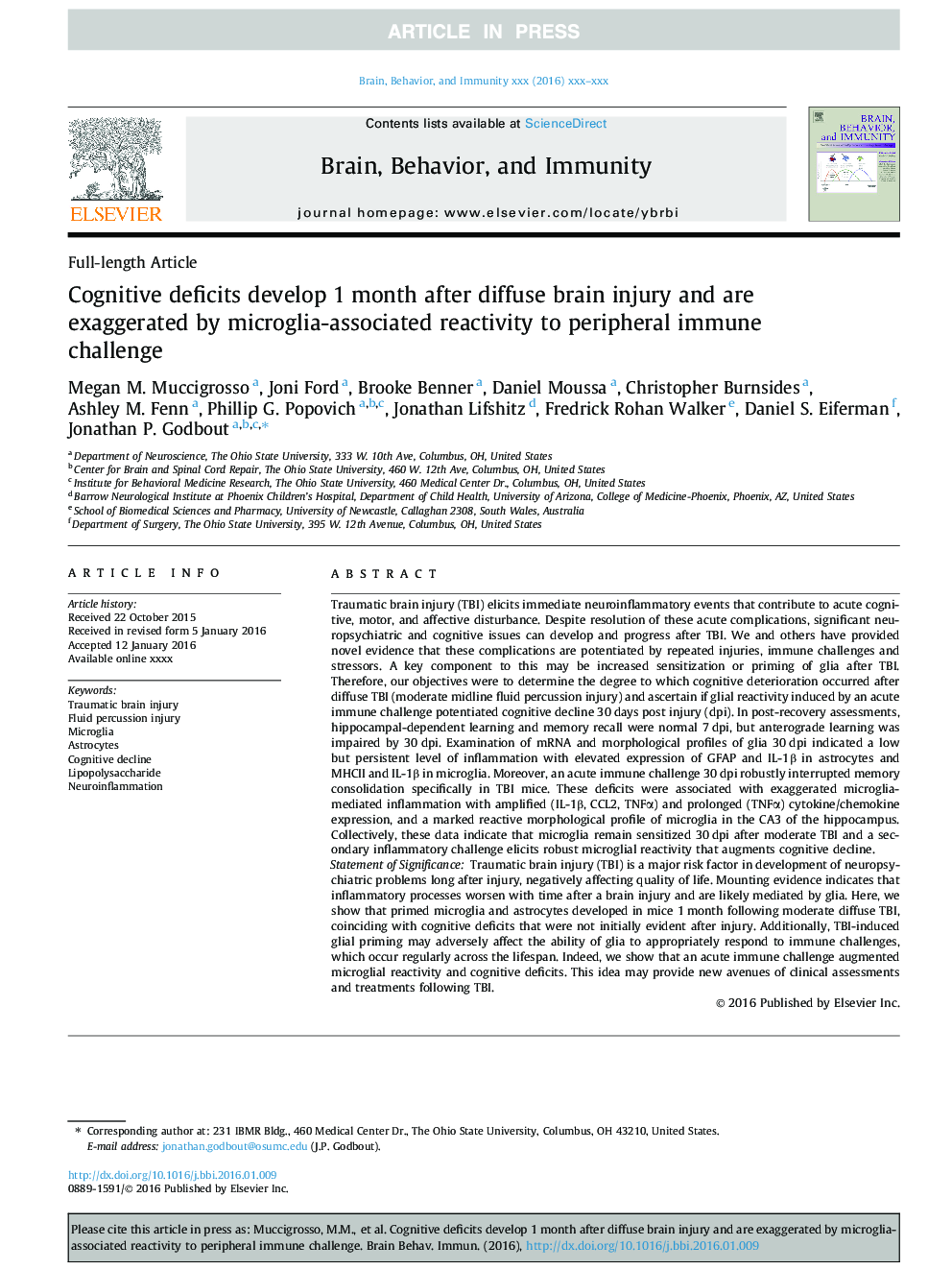| Article ID | Journal | Published Year | Pages | File Type |
|---|---|---|---|---|
| 7280444 | Brain, Behavior, and Immunity | 2016 | 15 Pages |
Abstract
Traumatic brain injury (TBI) is a major risk factor in development of neuropsychiatric problems long after injury, negatively affecting quality of life. Mounting evidence indicates that inflammatory processes worsen with time after a brain injury and are likely mediated by glia. Here, we show that primed microglia and astrocytes developed in mice 1Â month following moderate diffuse TBI, coinciding with cognitive deficits that were not initially evident after injury. Additionally, TBI-induced glial priming may adversely affect the ability of glia to appropriately respond to immune challenges, which occur regularly across the lifespan. Indeed, we show that an acute immune challenge augmented microglial reactivity and cognitive deficits. This idea may provide new avenues of clinical assessments and treatments following TBI.
Keywords
Related Topics
Life Sciences
Immunology and Microbiology
Immunology
Authors
Megan M. Muccigrosso, Joni Ford, Brooke Benner, Daniel Moussa, Christopher Burnsides, Ashley M. Fenn, Phillip G. Popovich, Jonathan Lifshitz, Fredrick Rohan Walker, Daniel S. Eiferman, Jonathan P. Godbout,
